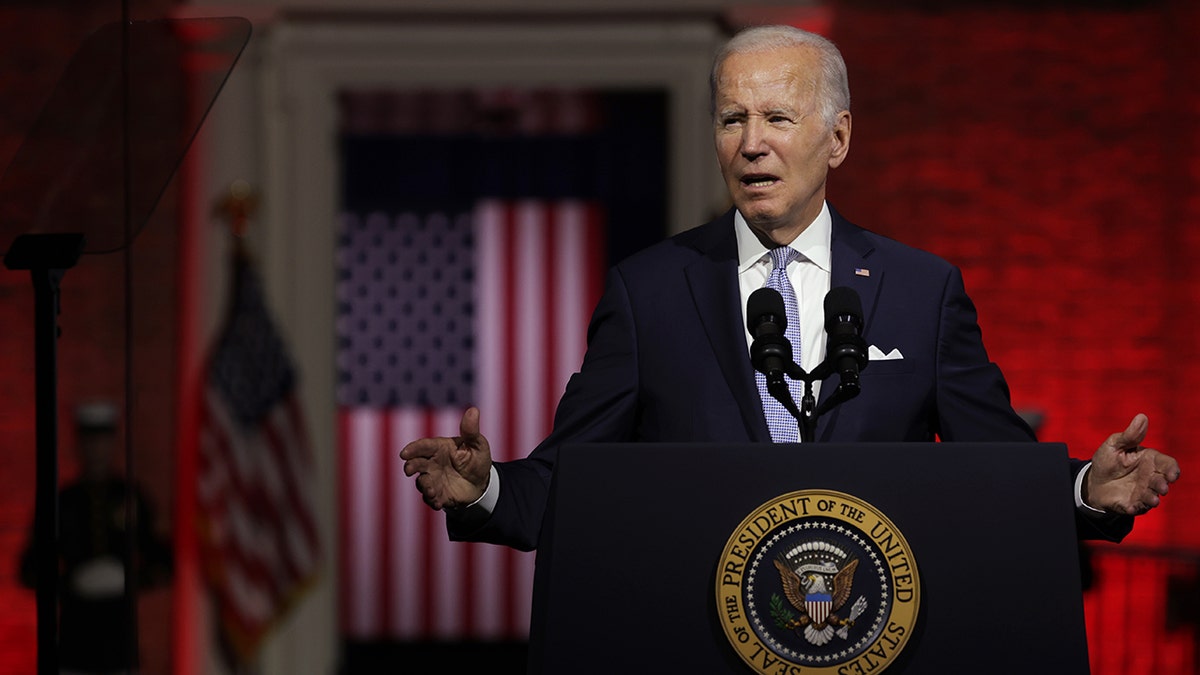President Biden’s meeting with historians over the summer was considered a "problem" Sunday by NPR’s Sandhya Dirks because they were all White.
Dirks, who is NPR's national correspondent for race and identity, noted that less than one month before Biden’s political speech decrying "MAGA Republicans" as a threat to democracy, the president met with a group of historians to discuss the fate of democracy in the country. She also remarked how the "monochromatic makeup" of this group "raise[d] questions."
"It seemed the Biden administration had only invited white experts to advise the president — four historians and one journalist: Princeton historian Sean Wilentz, University of Virginia historian Allida Black, presidential historians Michael Beschloss and Jon Meacham, who is also an occasional speechwriter for Biden, and journalist and Atlantic staff writer Anne Applebaum," Dirks wrote. "But it wasn't only the lack of diversity in that group, it was where that lack of diversity seemed to lead."
The meeting compared this moment in history to the lead up to the Civil War and World War II but, according to law professor Kenneth Mack and New Yorker writer Jelani Cobb, this "missed the point" as "important parts of U.S. history" that are felt by only Black and Native Americans were left out.

Washington DC, USA - June 4, 2012: The NPR (National Public Radio) building in Washington DC. Founded in 1970, NPR is a non-profit network of 900 radio stations across the United States. (iStock)
Cobb thought it was "concerning that this meeting of all white historians happened at all."
Mark pointed to the period between the end of Reconstruction and the Civil Rights movement as a time when the "death of democracy" had been experienced by African Americans.
"If you don't examine how democracy has died for people of color in this country, you might miss how freedom fades not in big bombastic moments, but in slow ongoing repression," Dirks explained, "And if you exclude the voices of scholars and writers who understand an anti-democratic, fascist order as heritage, rather than an aberration, you might miss how democracy has before been pulled back from the brink."
Dirks quoted other historians and professors who noted how important it is "to understand how racism and white supremacy have always been at the center of threats to our democracy."

President Biden met with a group of historians prior to giving his speech denouncing "MAGA Republicans" as a threat to democracy. (Photo by Alex Wong/Getty Images)
"It's not enough to understand democracy is at risk, without learning from those who have borne — and still bear — the brunt of its loss," Dirks wrote.
She ended noting the importance of promoting minority historians and scholars at a time when they claim Republican politicians are trying to "sensor and silence" racial policies and CRT.
"The campaign to outlaw the teaching of America's racist — and anti-democratic — past is not a coincidence, says Cobb. The same politicians who are pushing history into the shadows, are also pushing and promoting voter suppression laws pulled directly from that past. ‘What they are doing is effectively turning off the light switch,’ at the moment we most need to be able to see, Cobb says," Dirks concluded.

Republicans and parents have been denounced as racist for opposing critical race theory being taught in schools. (Reuters)
CLICK HERE TO GET THE FOX NEWS APP
NPR has been mocked over the past year for focusing on insignificant racial issues such as suggesting that using certain emojis can denote White privilege. The publicly funded media organization has also been criticized for "struggling" to keep its "high-profile journalists of color" after three reporters announced their departure within three months.

